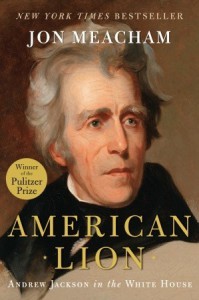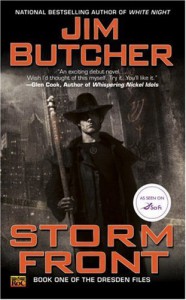
My rating: 3 of 5 stars
Personal Enthusiasm: It Was Okay
Since I've started reviewing books, I've been trying to force myself to review a book based on what it's meant to be rather than on what I wish it was. After all, that's the only way to be fair to the author. So it was with this book. I was hoping for a narrative of the life of Andrew Jackson. Instead, I got an analysis of the man and the times he lived in. I was annoyed at first but I forced myself to evaluate it fairly. I think I'm glad that I did.
The title of this book was deliberately chosen. Jackson was an orphan who felt alone much of his life. In reaction to that (as the book makes clear), he valued family highly and would go to any length to protect and defend family. For Jackson, the nation was but an extension of his own family. He loved his country and would go to any length (including invading Florida, risking war with France, evicting the Indian tribes, and suppressing free speech) to protect and defend it. He was very much the "American Lion", defending his pride.
Meacham’s intent with this book was not to exhaustively document Jackson’s life. Nor was it even to exhaustively document Jackson’s years as President. Instead, Meacham drew on newly available letters and papers to sketch a potrait of Jackson’s personal life and his relationships with his closest friends and family members.
While this approach has some advantages in humanizing “The General”, it also has some downfalls. Meacham does provide a thumbnail sketch of Jackson’s early years and his path to the White House. Regrettably, I feel that it’s cursory enough that it fails to fully setup the drama that was to follow.
For instance, I was really hoping for a look at the actual events of Jackson's life. For instance, how did he campaign for the Presidency? How did Presidential campaigns work, day to day, during the early 1800's? The book just glossed right over those details, mentioning only that Jackson won or lost a given election.
This became important when you consider that a central battle of the first two years of Jackson’s presidency involved Major Eaton, the Secretary of War. Jackson staked his entire Presidency on the question of whether or not people around him were loyal to Major Eaton. Eventually, the entire Cabinet was sacked over the question: the first time that had happened in American history.
I spent much of this portion of the book wondering why Jackson was being so incredibly loyal to Eaton. I later grew to realize that Eaton had been quite a central figure in Jackson’s earlier life and in winning the Presidency. Because Meacham passed over those years so quickly, I failed to understand (until much later) just how important Major Eaton was to General Jackson.
This flaw weakened the book, in my opinion.
I did learn quite a bit from this book (and may write more later on my impressions of Jackson and his age) but I felt that it would have benefited from more detail and more background information, both about Jackson and about the age Jackson lived in.

